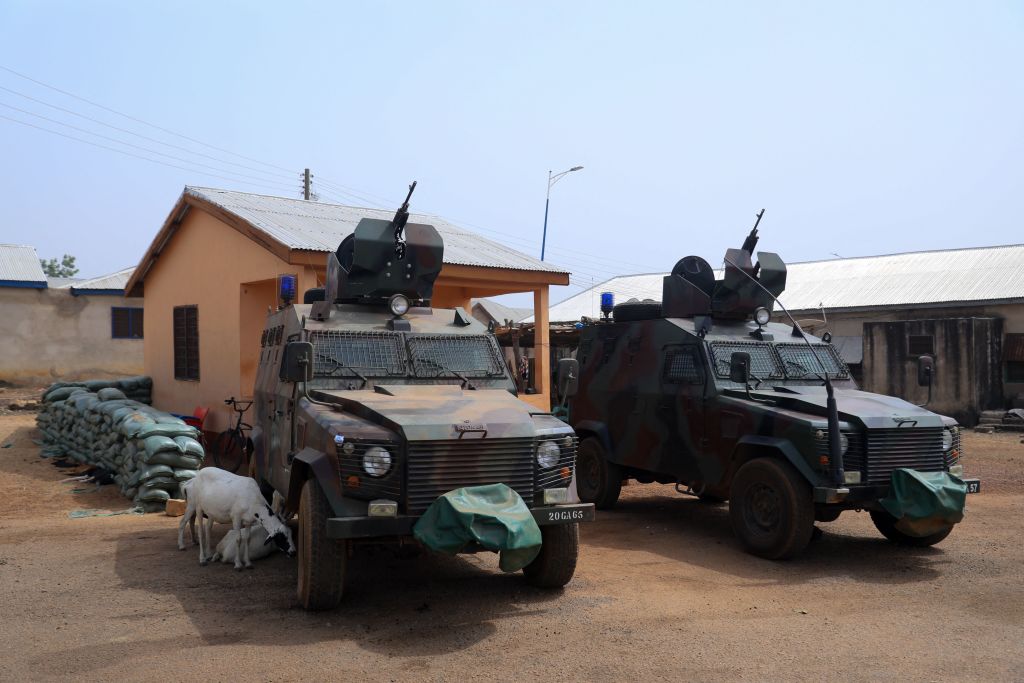ADF STAFF
Among the most pressing issues that must be addressed by Ghana’s new president, John Dramani Mahama, is devising and deploying a coherent, multifaceted approach to the growing threat of terrorist groups spilling south from the Sahel.
Mahama, who held the same position from 2012 to 2017, made the country’s economic crisis his dominant platform, and experts have long called for much more investment in the north to complement Ghana’s military approach to preventing militants from gaining ground. He is originally from Damongo in northern Ghana, which raises hopes that he will restore peace to the region.
“Expectations of Ghanaians are very high, and we cannot afford to disappoint them,” Mahama said in his victory speech. “Our best days are not behind us. Our best days are ahead of us. Forward ever, backwards never.”
Extremist militants from the Sahel already have established themselves inside of Ghana’s porous 600-kilometer border with Burkina Faso and are likely recruiting from marginalized communities in the north.
“The spillover risk is high,” Adam Bonaa, a security analyst with the Accra-based Institute of Security, Safety, Policy and Research, told The Africa Report magazine.
Journalist Nosmot Gbadamosi has reported from northern Ghana for the past few years and said she has observed “an alarming spike in criminality and violence” in remote border communities.
“Yet the young men whom I talked to said they engaged in criminal networks to smuggle gold, wood, weapons and machinery via Burkina Faso and Togo because they were jobless and poor,” she wrote for Foreign Policy magazine on November 20. “Their motives were financial, not ideological. Indeed, hunger was the overriding factor.”
Security experts have warned that the government must increase its presence in the north with services to address widespread poverty and unemployment, which has ballooned to nearly 15% nationwide. According to the World Data Lab, around 3.5 million men and 3.3 million women in Ghana are in extreme poverty, defined at a threshold of living on or below $2.15 a day.
While Ghana’s military is well-regarded, it cannot prevent the spread of violent extremist groups on its own. Analyst R. Maxwell Bone has sounded alarms that rural communities are particularly exposed to the expansion of extremist groups.
“In Ghana, groups affiliated with JNIM and the Islamic State have established themselves as key nodes within the illicit gold trade, a major economic activity in the country’s north,” R. Maxwell Bone wrote in a September 2024 analysis for Foreign Policy magazine. “Unless the militarized approach is replaced with one with an emphasis on mitigating the social exclusion that has rendered communities vulnerable to violent extremist recruitment, the security situation will continue to deteriorate.”
The United States in March 2024 announced $100 million in aid to support conflict prevention and stabilization efforts in Ghana, Benin, Côte d’Ivoire, Guinea and Togo — all of which border Sahel terrorism hot spots in Burkina Faso, Mali and Niger. The European Union also provided military assistance in 2024 to bolster Ghana’s defense against radicalization.
About 4 kilometers from Ghana’s northern border with Burkina Faso, the town of Bawku starkly embodies the country’s internal challenges. Hospitals, banks and schools have shut down, as deadly attacks between the Kusasi and Mamprusi ethnic groups have intensified.
“Bawku’s lawlessness offers fertile ground for their expansion,” Bonaa said. “The Sahel’s terrorist networks see any vacuum as an opportunity.”
Mahama Ayariga, a local member of parliament, is gravely concerned that Bawku, like so many border communities, urgently needs government and military intervention.
“The violence here is heartbreaking,” he told The Africa Report. “If this isn’t addressed soon, Bawku will become Ghana’s weak link in the fight against terror.”

